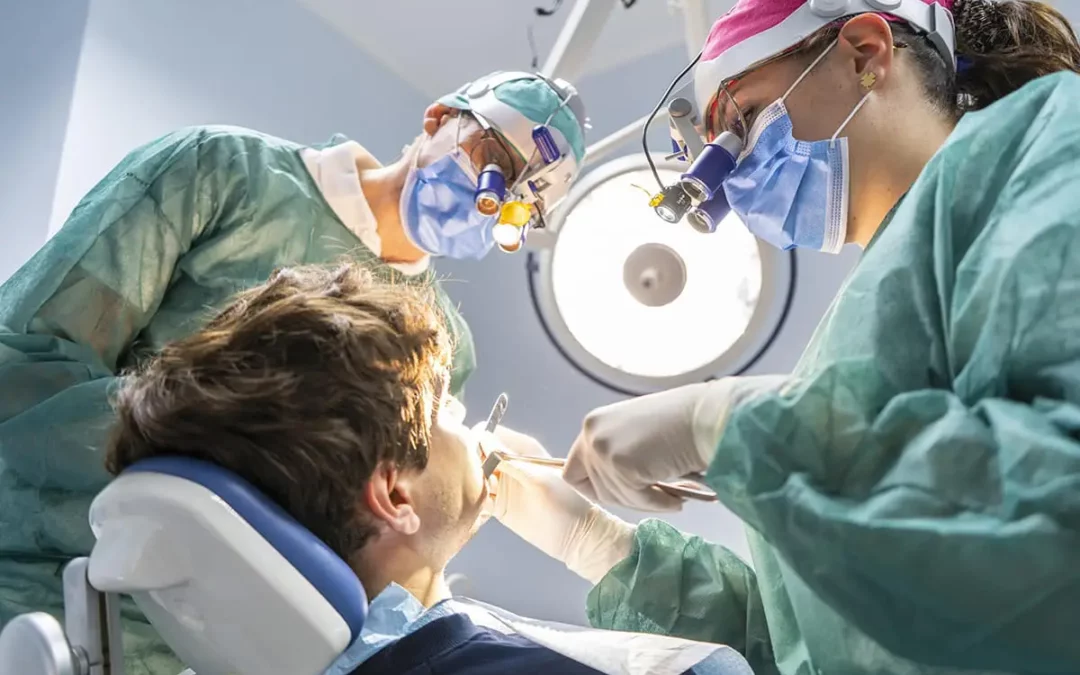Oral surgery encompasses a wide range of procedures aimed at diagnosing and treating various disorders affecting the mouth, jaws, and facial structures. These disorders can range from dental issues such as impacted wisdom teeth to more complex conditions such as temporomandibular joint disorders (TMJ). Understanding the diverse range of disorders treated by oral surgery in Coweta OK is essential for patients seeking appropriate care and for dental professionals providing specialized treatment options.
Tooth Impaction
Tooth impaction occurs when a tooth fails to emerge fully through the gum line, becoming trapped or impacted within the jawbone. This commonly affects wisdom teeth, but can also occur with other teeth, such as canines or premolars. Oral surgeons perform surgical extraction to remove impacted teeth, relieving pain and preventing potential complications such as infection, damage to adjacent teeth, or cyst formation.
Dental Trauma
Dental trauma refers to injuries sustained to the teeth, gums, or supporting structures as a result of accidents, falls, sports injuries, or other traumatic events. Oral surgeons are trained to assess and treat various types of dental trauma, including fractured teeth, dislodged teeth, or injuries to the soft tissues of the mouth. Prompt evaluation and treatment by an oral surgeon can help preserve damaged teeth and restore oral function and aesthetics.
TMJ Disorders
Temporomandibular joint disorders (TMJ) encompass a range of conditions affecting the jaw joint and surrounding structures, causing pain, stiffness, clicking or popping sounds, and difficulty chewing or speaking. Oral surgeons specialize in diagnosing and treating TMJ disorders, utilizing a variety of surgical and non-surgical interventions to alleviate symptoms and improve jaw function. Treatment options may include arthroscopic surgery, joint repositioning, or joint replacement procedures, depending on the severity and nature of the condition.
Oral Pathologies
Oral pathologies include a wide range of abnormalities, such as cysts, tumors, lesions, or infections that develop within the mouth or jaw. Oral surgeons perform biopsies, surgical excisions, or other procedures to diagnose and treat oral pathologies, preventing further complications or spread of disease. Early detection and intervention by an oral surgeon are crucial for preserving oral health and preventing serious health risks associated with untreated oral pathologies.
Sleep Apnea
Sleep apnea is a sleep disorder characterized by interrupted breathing or shallow breathing during sleep, leading to poor sleep quality, daytime fatigue, and other health problems. Oral surgeons may offer surgical interventions such as uvulopalatopharyngoplasty (UPPP) or maxillomandibular advancement (MMA) to address obstructive sleep apnea by enlarging the airway and reducing airway obstruction during sleep. These surgical procedures can improve breathing and alleviate symptoms of sleep apnea, enhancing overall quality of life.
Facial Trauma and Reconstruction
Facial trauma refers to injuries sustained to the facial structures, including the jaw, cheeks, nose, or orbits, as a result of accidents, falls, assaults, or other traumatic events. Oral surgeons are trained to assess and treat facial trauma, utilizing surgical techniques to repair fractured bones, restore facial aesthetics, and preserve oral function. Facial reconstruction procedures performed by oral surgeons aim to restore form and function to the face following traumatic injury or surgical removal of tumors or other abnormalities.
Conclusion
Oral surgery plays a vital role in diagnosing and treating a wide range of disorders affecting the mouth, jaws, and facial structures. From tooth impaction and dental trauma to TMJ disorders, oral pathologies, sleep apnea, and facial trauma, oral surgeons are trained to provide specialized care to address diverse patient needs.

